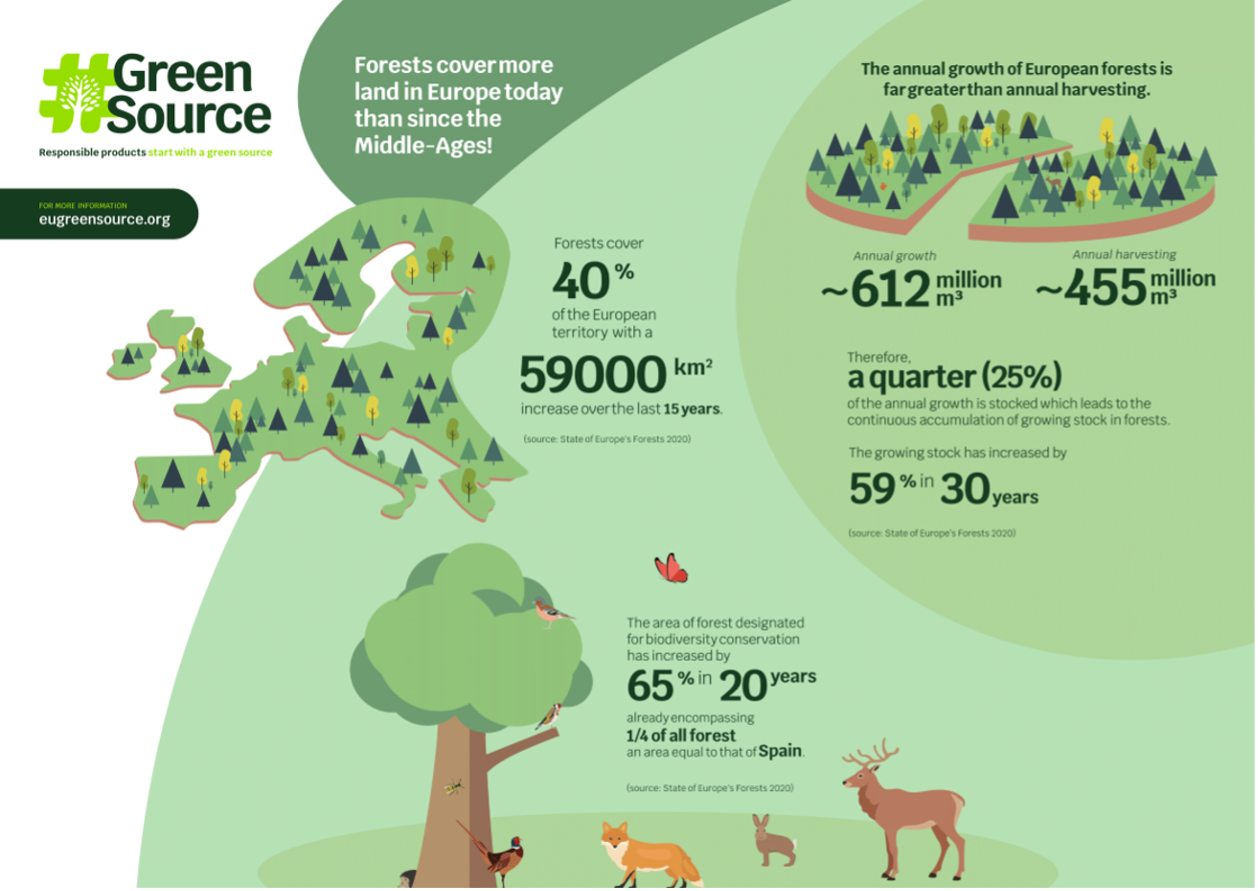Forests as solutions for global challenges
Responsibly managed forests are an effective and sustainable way to use land. The European forest-based sector is helping to solve the global climate challenge. Our positive climate impact is equivalent to 20 % of the EU's fossil emissions each year. Net sinks in forests and forest products store 447 million tonnes of CO2.
Responsibly managed forests play a vital part in solving also other global challenges by
· Providing natural resources for a low-carbon circular bioeconomy
· Maintaining biodiversity
· Securing clean water
· Improving wellbeing and quality of everyday life for people
Sustainable forestry
Sustainable Forest Management (SFM) is driving Europe’s forest growth. The industry has invested in the use of forest certification schemes such as the Forest Stewardship Council® (FSC) and the Programme for the Endorsement of Forest Certification™ (PEFC) and further voluntary schemes.
EPIS members are committed to sourcing wood from sustainably managed forests. This among other things means that:
· The origin of wood is always known
· All wood is legally harvested
· Harvested areas are replanted
· Biodiversity is valued
· Forests are managed as carbon sinks
· Water systems are protected
· No wood from protected areas or tropical forests is used
· Occupational health and safety is respected
· Strict requirements for suppliers with regular audits are maintained
In 2020, 92 % of EPIS members' market pulp sold was certified. This compares well to the fact that only 11 % of the world's forests are certified.
Sustainable forest management preserves biodiversity and safeguards the forests for future generations. To ensure the benefits in the future, for every tree harvested, many more seedlings are planted.
Forests have an important economic role beyond providing a renewable base for resources needed by all people as they provide vital income and employment in rural areas and down the forest-based value chain.

